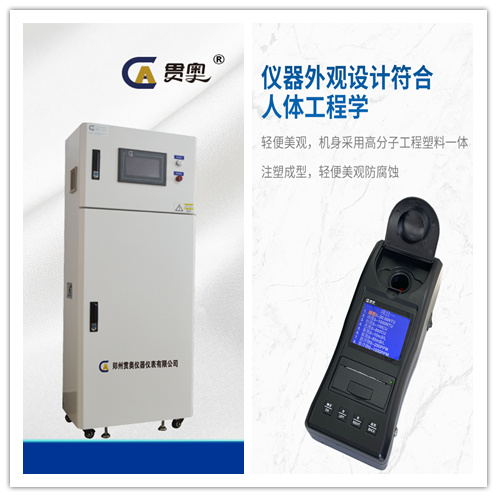Everyone knows that water quality analysis is a method of determining the condition of water bodies, usually using relevant instruments to analyze and evaluate water bodies such as tap water, groundwater, rivers, lakes, and oceans, to ensure that water quality meets health and environmental standards. The common parameters for general water quality analysis include: pH, dissolved oxygen, ammonia nitrogen, residual chlorine, suspended solids, heavy metals, etc. Basically, it is conducted by professional institutions or laboratories. Analysis instruments can be divided into two types: online water quality analyzers and portable water quality analyzers. Although they are all equipment for analyzing water quality, there are still some differences in usage scenarios, analysis methods, functions, application industries, maintenance, and other aspects. Today, we will specifically explain the difference between online water quality analyzers and portable water quality analyzers.

Differences in analysis methods and functions
Online water quality analyzer is a common analytical equipment used in industrial water treatment systems. It continuously and automatically monitors the water in the water treatment system through a series of sensors and controllers, and can analyze various indicators of water in real-time, such as dissolved oxygen, turbidity, pH value, conductivity, temperature, etc., to ensure that the water quality meets the requirements. Online water quality analyzers require long-term stable operation, therefore they need to be connected to a power supply and network, and require professional maintenance and operation. Online water quality analyzers are usually installed in pipelines or water tanks of water treatment systems to monitor water quality in real time, detect water quality problems in a timely manner, and handle them to ensure the safety and stability of industrial production.
A portable water quality analyzer is a handheld device that can quickly analyze water samples on site. It usually uses principles such as electrochemistry, optics, electronics for analysis, and can measure various physical and chemical indicators in water, such as dissolved oxygen, turbidity, pH value, conductivity, temperature, chlorine, iron, nitrate, etc. The portable water quality analyzer has the characteristics of portability, simplicity, fast measurement, and good repeatability, and is suitable for field water quality monitoring, drinking water monitoring, environmental protection, and other fields. Unlike online water quality analyzers, portable water quality analyzers do not need to be connected to a power supply or network, and can be operated and recorded through built-in batteries and data storage devices.
Differences in maintenance
Online water quality analyzers require regular maintenance and upkeep to ensure the stability and accuracy of the equipment. The specific maintenance content includes:
Regularly inspect the sensors of the equipment, such as dissolved oxygen sensors, pH sensors, turbidity sensors, etc., to ensure the sensitivity and accuracy of the sensors.
Regularly replace sensors, such as electrodes and membranes, to ensure the stability and accuracy of the equipment.
Regularly clean the equipment to remove sediment, dirt, and algae from the water to ensure its stability and accuracy.
Regularly calibrate the equipment to ensure its accuracy.
The maintenance of a portable water quality analyzer is relatively simple, requiring regular calibration and battery replacement operations.
Differences in application
Online water quality monitoring instruments are mainly used in water treatment systems in industries, agriculture, municipal and other fields, and require long-term stable operation. Online water quality monitoring instruments are usually installed on the pipelines of the water treatment system, and are connected to the water treatment system to monitor water quality data in real-time and process and analyze it.
Portable water quality analyzers are mainly used in fields such as environmental protection, food, medicine, etc. For example, in field water source surveys, the use of portable water quality analyzers can quickly measure various indicators of water, providing scientific basis for the development and utilization of water sources. In the production process of drinking water and food, it is also necessary to use portable water quality analyzers to monitor water quality and various indicators in food. Portable water quality analyzers typically have the characteristics of portability, simplicity, fast measurement, and good repeatability, making them suitable for on-site use.
Overall, both online water quality monitors and portable water quality analyzers are equipment used for analyzing water quality, but there are significant differences in their application industries, functions, maintenance, analysis methods, and other aspects.
Online water quality monitoring instruments are suitable for industrial, municipal and other water treatment systems that require long-term stable operation scenarios, while portable water quality analyzers are suitable for on-site analysis scenarios such as field and drinking water monitoring. Therefore, everyone needs to choose appropriate analytical instruments based on specific needs.



